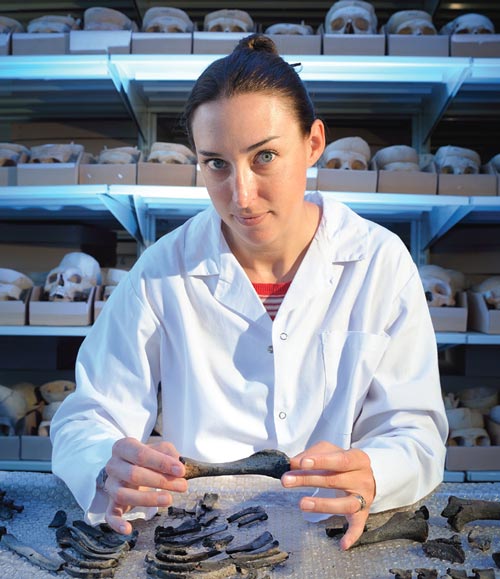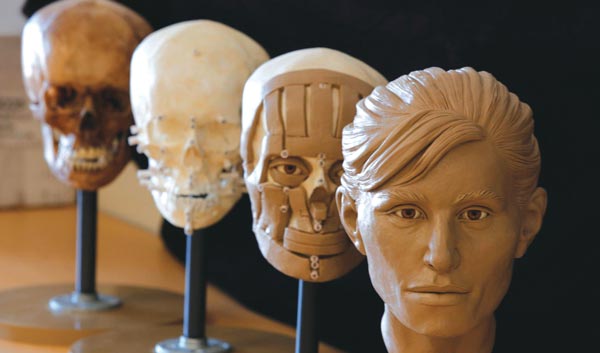 Professor Ericka L’Abbé
Professor Ericka L’Abbé
Ericka L’Abbé is a Professor in the Department of Anatomy and Head of the Forensic Anthropology Research Centre in the Faculty of Health Sciences. Researchers in the unit are leaders in the study of human variation, forensic anthropological techniques and bone trauma analysis in sub-Saharan Africa. They specialise in research on human variation of South African groups, with the intention of creating accurate and reliable biological profiles from skeletal remains. A biological profile, with assistance from the South African Police Services (SAPS), provides basic information to family members who are seeking a missing relative. Other aspects of the body can be used to formulate a positive identification – such as ante mortem dental records, fingerprints and DNA.
This research addresses social and biological knowledge gaps on human skeletal remains and its application in medico-legal investigations in South Africa. Information on sexual dimorphism, juvenile age estimation, and ancestry is used directly to establish a more accurate, plausible identification of an unknown person. For example, research into sexual dimorphism and ancestry among socially defined South African groups has improved the reliability and validity of the techniques used to interpret these biological parameters from an unknown person. Additionally, publication of this work and the education of students at a tertiary level has contributed to removing the 20th century race typology stigma in South Africa.
The researchers in the Forensic Anthropology Research Centre are recognised internationally for their work in this field and have made significant advances in the technology and statistical analyses used on their research material. Many graduates go on to work in academia or the SAPS. In addition, the use of new analytical techniques has contributed to enhancing work in forensic anthropology in general. In future, research will focus on exploring human variation within the South African population and subsequent comparison with other populations, with an emphasis on countries that contributed to the genetic composition of South Africans.
 Forensic facial reconstruction sculpture
Forensic facial reconstruction sculpture